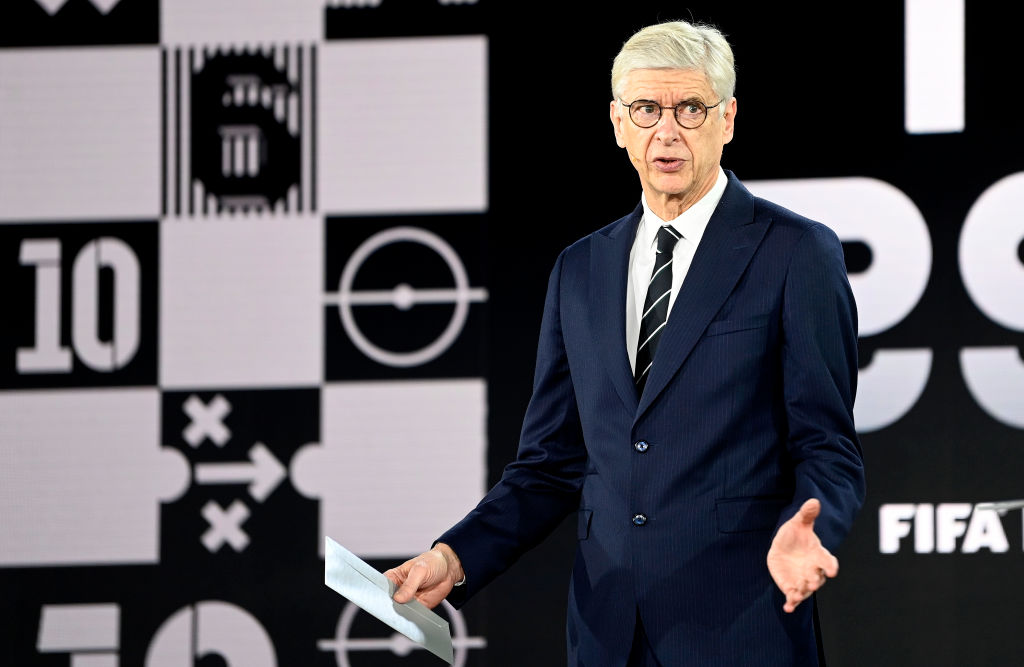A World Cup every two years would make it less special – and the proposal is nothing but a power grab
FIFA's World Cup proposition masquerades as a reform for the good of the game, but is merely an effort to turn back football's tides

Poland stopped England from reaching the 1974 World Cup. It was a result that assumed a greater significance because there was not another for four more years, when there would be no realistic prospect of any of the 1966 winners featuring. It was the end of an era.
Poland could have eliminated England from the 1986 World Cup, too. Gary Lineker’s hat-trick ensured otherwise, but the game was bigger because there was not another tournament on the horizon. Now England could dent Poland’s chances of going to Qatar. There is the very real possibility Robert Lewandowski has played his last World Cup game.
All of which would feel less likely if FIFA got their way. Arsene Wenger’s plan, following a proposal from the Saudi Arabian FA, of staging a World Cup every two years might seem a welcome antidote to qualifiers. Whatever television audience Poland v England attracts on Wednesday, it would probably be doubled in the UK if it were a tournament match. International football can seem the club game’s unwanted, uglier sibling in autumns, serving up drabber fare. Those who are bored by qualifiers can be energised come tournament summers.

Making the national teams’ major attraction a more frequent occurrence seems a one-stop solution. And, conveniently for the governing bodies, a more profitable one. And if less time was available for qualifiers and thus the tournament was expanded, a more inclusive one. If FIFA was scarred by a World Cup in 2018 without the planet’s economic superpower (the United States), its most populous country (China) and one of its defining teams (Italy), they could make it bigger and more regular.
But also more mediocre and less meaningful. The title of world champion would carry the same cachet but the frequency would diminish the magnitude of each match. UEFA president Aleksander Ceferin has a vested interest but that does not make him wrong when he said: "We think that the jewel of the World Cup has value precisely because of its rarity. Holding it every two years will lead to less legitimacy and dilute the World Cup itself.” There are reasons why winter and summer Olympics and cricket and rugby World Cups operate in four-year cycles. It works. A major reason why winning the World Cup stands apart from lifting the Champions League is that opportunities to do so are so much rarer.
Laudable as it is that more countries want to host a World Cup and that, in the only truly global team sport, more can harbour realistic hopes of participating, moving to 48 teams, in 2026, is already a step too far and this guess is that 48 is a stepping stone on the road to 64. No doubt it irritates FIFA that the standard of European Championships is higher than World Cups, and in turn arguably lower than the Champions League, just as it must annoy the governing body that the tectonic plates in the sport have shifted so that clubs consume more interest and earn more money.
But this is not the answer. It is another power grab, another depressing example of greed masquerading as reform for the greater good. It is not quite as bad idea as FIFA’s attempts to expand their largely pointless Club World Cup and not as morally wrong as the Super League, but that does not render it right.
Get FourFourTwo Newsletter
The best features, fun and footballing quizzes, straight to your inbox every week.
Because World Cups do not exist in a vacuum. The footballing calendar is crowded already. It is disingenuous to pretend ripping it up will not come at a cost, and not just to the bodies of overworked players. If this feels an attack on the European Championships, as part of the FIFA’s ongoing power struggle with UEFA, there is an attempt to diminish continental championships everywhere. As ever with top-down proposals, there is little care or consideration for the damage that would be done lower down the pyramid, to those who, indirectly, would be the victims of an attempt to secure more multi-billion dollar television deals.
But when World Cups are good – and they usually are – it tends to be in spite of FIFA, not because of them. Any attempt to make them more frequent would in turn make them less special. Once again, football needs to be spared FIFA’s intervention.
Subscribe to FourFourTwo today and get three issues delivered for just £3. The offer ends October 17, 2021.
READ NEXT
JOLLY Rafael Benitez sets Everton back on the right path with savvy summer spending
QUIZ Can you name the 25 highest-scoring active international men's players?
BLUES Lukaku for "free"? Chelsea's transfer business trumps all this summer
Richard Jolly also writes for the National, the Guardian, the Observer, the Straits Times, the Independent, Sporting Life, Football 365 and the Blizzard. He has written for the FourFourTwo website since 2018 and for the magazine in the 1990s and the 2020s, but not in between. He has covered 1500+ games and remembers a disturbing number of the 0-0 draws.

